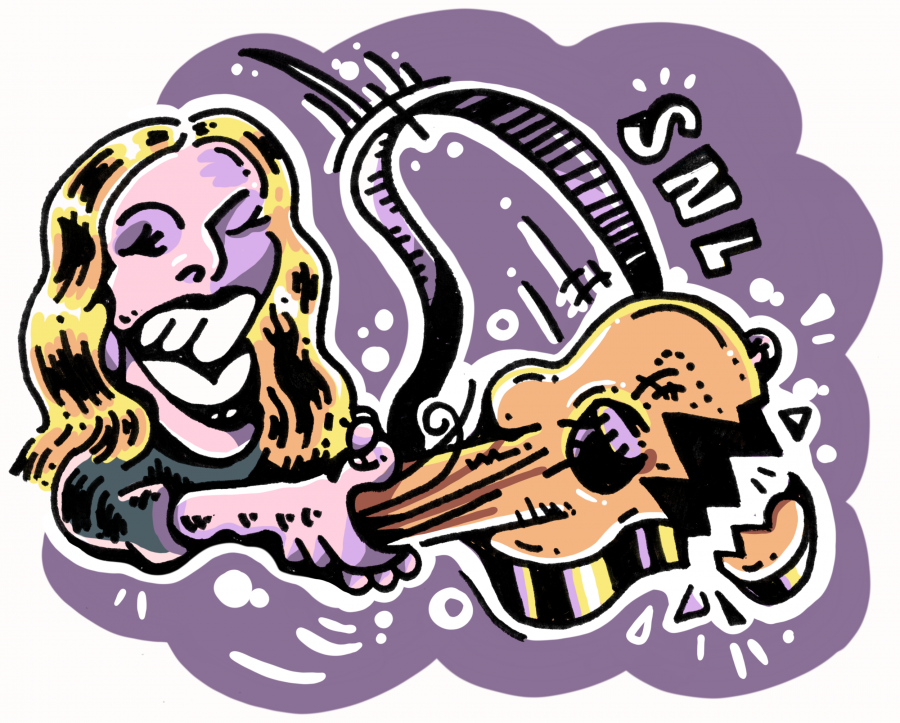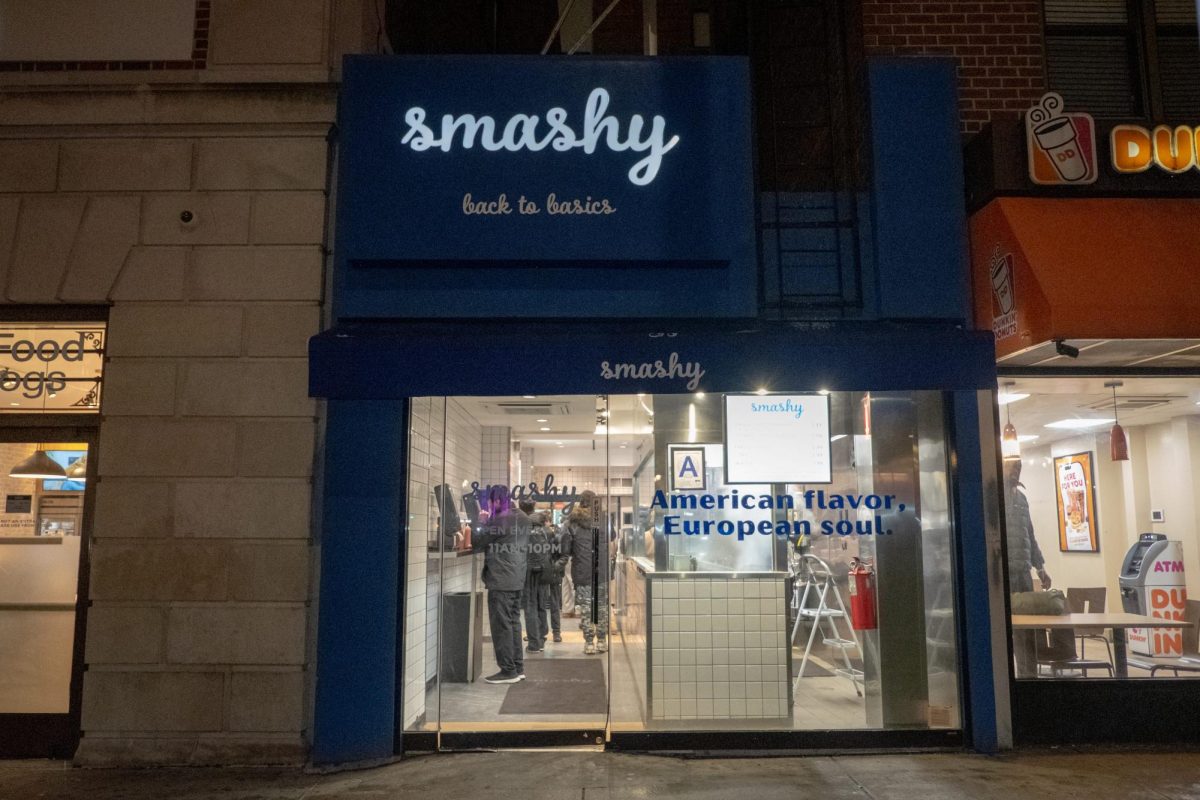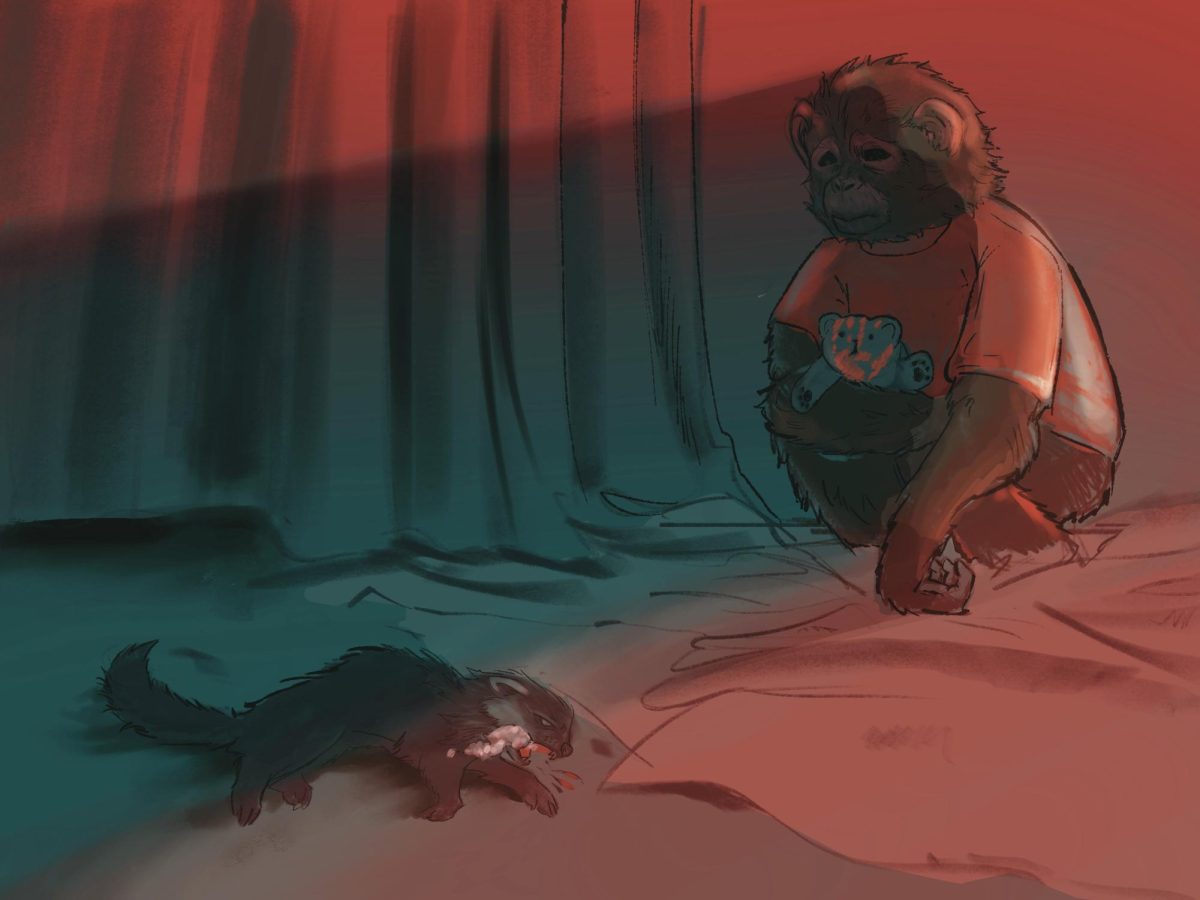The most miniscule and seemingly intricate feelings of learning to live in the moment and the fear of not belonging are pushed to the forefront on Phoebe Bridgers’ latest album Punisher. With lyrics like, “You couldn’t have/ Stuck your tongue down the throat of somebody/ Who loves you more” off of the track “Moon Song,” it’s hard to believe how potent and honest her music can be in such a short and precise package.
But Bridgers has the innate ability to do exactly this, never writing songs that are guarded behind false sentiments. The sort of in-your-face sensitivity that she exudes is probably the reason behind why she smashed her guitar during her debut performance on Saturday Night Live.
Or maybe she just simply wanted to.
Whatever the case may be, her display of unfiltered excitement, anger and vibrancy confused SNL viewers so much so that “guitar” was trending on Twitter alongside “Phoebe Bridgers” after the show aired.
Some critiques of Bridgers included that it was extra to smash the $85 guitar on the fake monitors at the front of the stage. Iconic folk-rock singer-songwriter David Crosby weighed in on Twitter, calling Bridgers’ performance “Pathetic,” to which Bridgers quote-tweeted calling Crosby a “little bitch.”
What about Bridger’s performance caused such an intense fervor? It’s not like she’s the first musician to break up a guitar on stage. The act of destroying equipment became a sort of expected trope for The Who’s Pete Townshend whenever they performed on television. Kurt Cobain seemingly never missed an opportunity to smash up his guitar, amplifiers or Dave Grohl’s drum set during their live shows.
The smashing of guitars became a trope synonymous with rock ’n’ roll. The act even adorns the cover of The Clash’s third album, London Calling. It’s something that exposed the banality of rock performances. As cultures began to shift and the musical landscape expanded, the art of guitar smashing was lost. With a few flare-ups here and there, the act of musicians taking out their passion on their instruments was rarely seen, until last weekend.
With Schitt’s Creek star Dan Levy as host, the show had a more current feeling to it. Bridgers, the current darling of the alternative music scene, reached a different audience that night and it showed. Decked out in skeleton outfits, like the one worn on the cover of Punisher, Bridgers and her band jumped around, screamed loudly and danced awkwardly. The guitar smash at the end of the song was the campiest thing about it. It was less of a performance and more of a moment with a few friends experiencing a moment together.
The reaction to Bridgers’ performance may show a dividing line generationally. Should anyone expect Crosby who turns 80 this year to feel some emotional connection to 25-year-old Bridgers smashing up her guitar?
Or is it more that people are still so unused to seeing women in certain spaces display their feelings as raw and unfiltered as Bridgers does? A look in the comment section of any Rolling Stone posts about Bridgers sees the rampant sexism that women in rock have always had to battle.
Women’s involvement in rock music has a deep yet silenced history. Although women and girls have been the muses for an extremely abundant number of male rockers, the female perspective in rock music was one that was often shuttered out. Simply reduced to the groupie or the teenybopper, the role of women in rock music was acting as the second fiddle to the pervasive-macho male rock star.
A bit of a musical revolution occured in the ’70s where women began to take control of their own legacy in rock music and saw moderate popularity. With bands like Fanny and Heart and The Runaways, the female perspective was pushed to the forefront devoid of any male involvement. These female rockers were trying to communicate that women have just the same right to sing loud and play louder.
With Bridgers’ SNL performance continuing on that legacy, it’s clear that there is still a long way to go. Someday it’ll be okay for 25-year-old alternative-indie singers to smash guitars on stage without causing an uproar.








